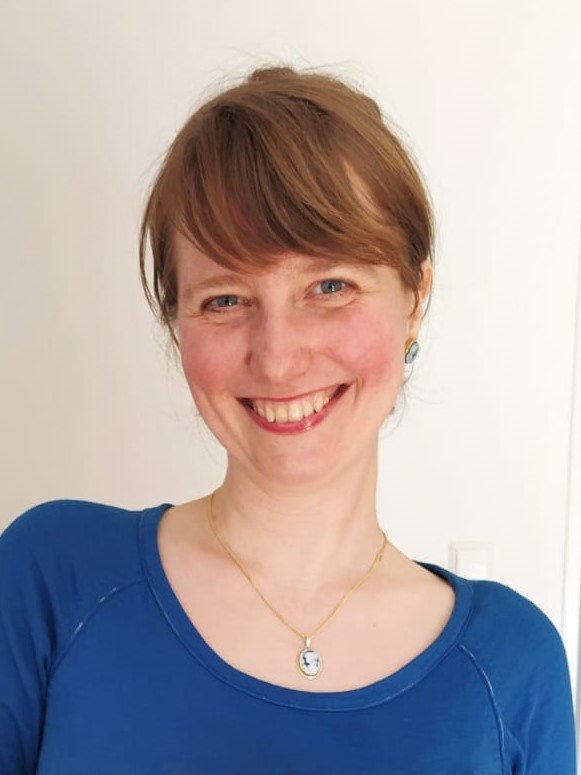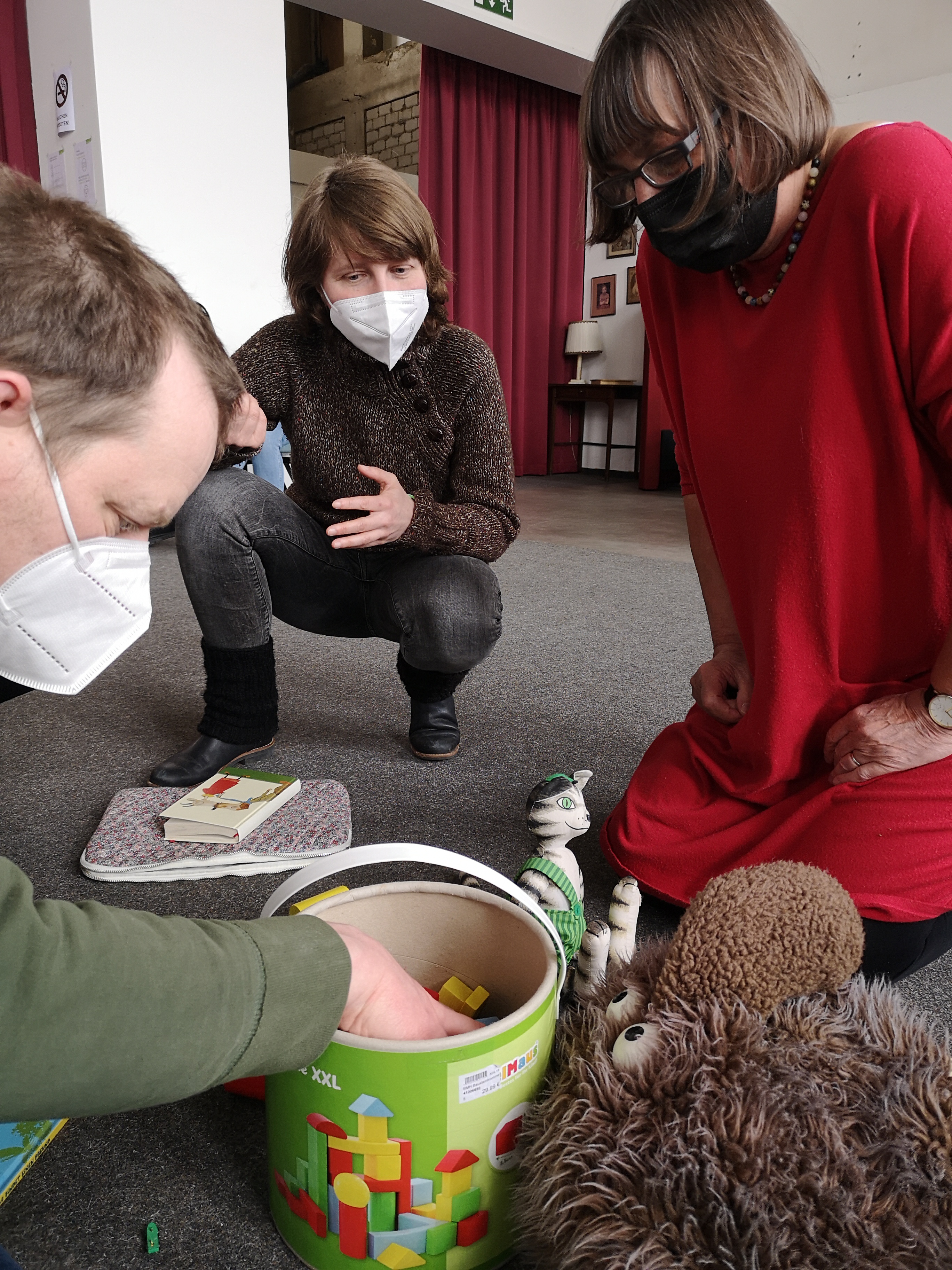BGHS.NEWS
Practitioners in Talk #Part 25
::Non-university careers::
Practitioners in Talk – Part 25
Many ways lead out of the BGHS. But where do postdoctoral paths lead? We talk to historians and sociologists who have taken up their career outside the university. Nicole Zielke spoke to us about her work as project manager and art director at the Theaterwerkstatt Bethel.

Figure 1: Nicole Zielke
Nicole, you did your PhD at the Faculty of Sociology in 2019, and you are now working as project manager and art director at the Theaterwerkstatt Bethel. If you remember starting your career: How did you find your way into the job?
Nicole Zielke: During my studies I did an internship here in the Theaterwerkstatt Bethel. That was in 2008. And I stayed – in a wide variety of employment relationships: from freelance work to third-party funded project positions to my current position, 17 percent of which is permanent. So I worked here while I was studying and doing my doctorate. The activities were very different: for example, I had a job to further develop the Theaterwerkstatt conceptually. Then I had a job to do neighbourhood work with the Theaterwerkstatt especially for people who needed support – in Bethel, in other parts of the city, but also in rural areas. And I had freelance assignments to work as a dramatic advisor on theatre productions or to lead ensembles
How did you come to your current position?
Nicole Zielke: By writing a project application to the Landesarbeitsgemeinschaft Soziokultur via the Theaterwerkstatt Bethel. The application was approved and the project aims to evaluate and further develop our artistic work. The method that we have been developing here since 2005 for artistic practice in heterogeneous groups is called “Volxtheater”. In the creation of our plays, experienced and less experienced theatre players cooperate with each other. In this project, we take a close look at this interaction of people with different life experiences, with and without disabilities, and expand our concepts in particular to include theatre work with digital means.
You work for the Theaterwerkstatt Bethel. Where do you work exactly?
Nicole Zielke: The Theaterwerkstatt Bethel is a small socio-cultural centre and free theatre that is basically funded by the von Bodelschwingh Foundation. We are three employees who are employed here. We also have freelancers. And there are fellow actors who do theatre here in their leisure time. These can be theatre productions with children, young people or adults. The players in our ensembles are schoolchildren, seniors, professionals, students, people interested in theatre or people who are cared for on an outpatient or inpatient basis in Bethel or other parts of the city. In addition to theatre productions, we have a number of other areas of work, such as the “Fachdienst Datstellende Künste”. Here we work closely with inpatient and outpatient institutions in Bethel and support clients with a high need for support in expressing themselves through artistic means in order to be able to live more self-determinedly. Second, we organize workshops and conferences on inclusion and diversity. And thirdly, we moderate communication and network processes, such as now for the Rochedale barracks in the east of Bielefeld. The barracks were used by the British Army until 2020, and together with the NRW-wide platform TRANSURBAN we will moderate a process to involve citizens in this urban planning project: What ideas do residents have of the future use of the barracks? And how should the site be designed?

Figure 2a und 2b: Nicole Zielke at work
You are project manager and art director. What are your – maybe: three – most important tasks in this job?
Nicole Zielke: The first is ensemble management. I moderate the theatre productions and keep the ensemble together. Secondly, I acquire the performances, I am in communication with the organizers and I am responsible for the logistics. Thirdly, I have a lot to do with developing the content of the plays. Fourth, I also take part in the plays. These are my tasks as artistic director. At the same time, I’m also in charge of the acquisition of project funds, public relations and the coordination of the network of freelancers. But you asked about the three most important tasks. (laughs)
What tips do you have for colleagues from sociology or history who are interested in a career in the occupational field you are in?
Nicole Zielke: At the time, it was important for me to gain practical experience here in the field of art and cultural activities. To name just one aspect: artistic practice in a large number of changing group constellations can be very stimulating, but also very challenging. I had to clarify that for myself whether I wanted to get involved. And then I had good experiences with career plan talks at the Career Service. That is where I learned about myself: I won’t earn my money with science, but I want to stay in touch with it. To this day, I have teaching assignments at various universities to give seminars on qualitative methods or in the field of aging research.
Nicole, thank you for the conversation!
The interview was conducted by Ulf Ortmann.
You can find the complete interview (in German) here:
Further information on the non-university careers project is available here, The previous interviews in the series are available here.
